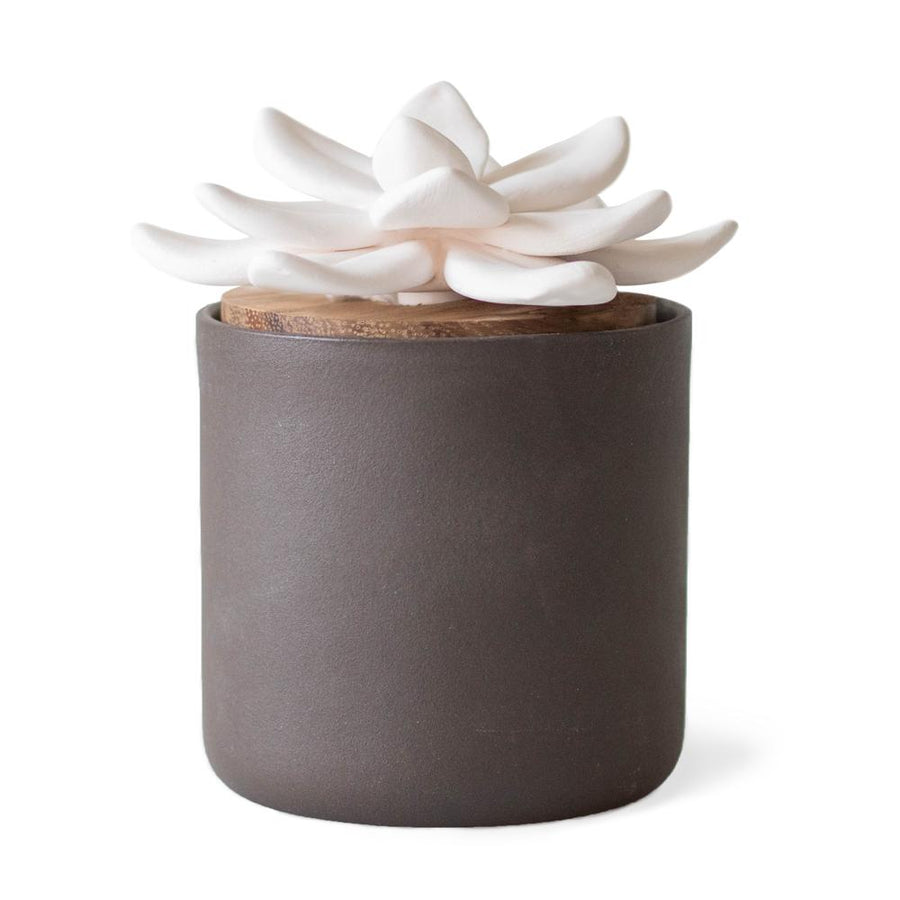How Do I Safely Use Aromatherapy If I'm 65+?

If you’re elderly or know someone that is, you may be interested in the benefits of essential oils. Afterall, there are so many wonderful ways essential oils can improve one’s life.
But before you venture off into using essential oils, there are essential oil safety guidelines and precautions that should be followed. Precautions with using aromatherapy becomes heightened when you are on medications, are immunocompromised, undergo surgeries, have health complications and more.
While growing older can bring new complications, using essential oils should be easy, which is why we’ve laid out the best tips on using aromatherapy if you’re 65+.
Dilution
All 100% pure essential oils should be diluted, no matter the brand or oil. We speak in depth about dilution in many articles across our blog. But do the same rules apply if you’re 65+?
Let’s think about skin. As we age, our skin loses elasticity and fat, becomes thinner and as a result becomes more frail. [1] Because of this, lower dilution rates are recommended for elderly adults using essential oils topically. With that said, a 1% dilution or 6 drops of essential oil in 2 tbsp of carrier oil is ideal for topical use.
For certain, short-term ailments such as bruising, inflammation, pain or injury, a higher dilution may be acceptable for spot treatment.
Essential oils with lower maximum recommended dilution rates should not be used topically.
Inhalation
Another great way to obtain the most benefits from your essential oils is by inhaling them. A few areas where inhalation may be preferred over topical use includes for respiratory issues, mood, headache, memory, immune support and more. But how long should you diffuse essential oils to benefit from them?
For elderly adults, 15-30 minutes of active diffusion is all you need to experience the benefits of essential oils, however you can diffuse up to an hour. Diffusing any longer than one hour may result in unwanted side effects, such as increased blood pressure and heart rate. [2]
If you wish to diffuse essential oils longer in order to add natural, beautiful aroma to your space, try using a passive diffuser–one that does not actively output essential oils into the air like water diffusers, nebulizers or ones that use electricity.
Examples of passive diffusers include:
You can also use the 30 seconds on/ 30 seconds off interval on both the Diamond Diffuser and Terrazzo Diffuser for up to two hours.
Oils to Avoid
Certain essential oils have heightened safety precautions which may adversely affect the elderly. For these reasons, they are not recommended if you are experiencing any of the following.
Taking Medication Metabolized by the Following Enzymes
-
Birch: Contraindicates anticoagulant medication
-
Blue Tansy: Inhibits drugs metabolized by CYP2D6
-
German Chamomile: Inhibits drugs metabolized by CYP2D6
-
Lemon Myrtle: Inhibits drugs metabolized by CYP2B6
-
Lemon Tea Tree: Inhibits drugs metabolized by CYP2B6
-
Lemongrass: Inhibits drugs metabolized by CYP2B6
-
Litsea: Inhibits drugs metabolized by CYP2B6
-
Wintergreen: Contraindicates anticoagulant medication
Bleeding Disorders
-
Allspice
-
Oregano
-
Wintergreen
Recently Had or Soon Will Have Major Surgery
-
Oregano
-
Wintergreen
Low Blood Pressure
- Ylang Ylang (all)
Cardiac Fibrillation
-
Peppermint (all) [3]
How Essential Oils Can Benefit Elderly Adults
While aromatherapy can benefit elderly adults in all of the same ways as younger adults, they can also assist in areas that are geriatric-specific.
-
A 2017 study on the use of aromatherapy with elderly dementia patients demonstrated Lavender essential oil’s ability to reduce agitation and improve behavior. [4]
-
A four-week aromatherapy trial on elderly adults revealed that essential oils were able to significantly lower negative emotions and reduce pain in participants. [5]
-
A Japanese study measured the benefits of aromatherapy on adults with dementia. Participants used Rosemary and Lemon essential oil in the morning and Lavender and Orange in the evening. After 28 days of aromatherapy use, all dementia patients showed a significant improvement in cognitive function. [6]
-
The effects of essential oil diffusion on elderly adults with sleeping problems was examined. Subjects chose their preferred essential oil (Lavender, Sweet Orange, Japanese Cypress, Virginia Cedarwood, Cypress and Pine). The essential oil was then added to a towel that was placed on the subject’s pillow before bed. Over the course of 20 days, essential oils correlated with a reduction in sleep disturbances and improvement in overall sleep. [7]
These are just a few of the many ways essential oils are helping to improve people’s lives.
Safety First
At Edens Garden, we put safety first. To ensure you’re using essential oils properly, we always recommend checking the safety section of an essential oil’s product page. If you’re unsure about the safety of an essential oil, you can get in touch with our aromatherapists at aaa@edensgarden.com. We also suggest consulting with your doctor before using essential oils.
And while this may seem like a lot to take in, with time and practice, intertwining essential oils into your daily routine gets easier. Plus, you don’t have to take this journey alone. On top of giving you access to our expert aromatherapists, we’ve also provided you with a host of resources and guides on our blog. Have a question? Just ask! We’re always happy to help.
Sources:
- Jaliman, Debra. “The Effects of Aging on Skin.” WebMD, 17 May 2019, www.webmd.com/beauty/cosmetic-procedures-aging-skin#1https://pubmed.ncbi.nlm.nih.gov/23197402.
- Chuang, Kai-Jen. “The Effect of Essential Oil on Heart Rate and Blood Pressure among Solus Por Aqua Workers.” PubMed, 21 July 2014, pubmed.ncbi.nlm.nih.gov/23197402.
- Tisserand, Robert, and Rodney Young. Essential Oil Safety. 2nd ed., Churchill Livingstone, 2014.
- Moorman Li, Robin. “Evaluating the Effects of Diffused Lavender in an Adult Day Care Center for Patients with Dementia in an Effort to Decrease Behavioral Issues: A Pilot Study.” PubMed Central (PMC), 23 Jan. 2017, www.ncbi.nlm.nih.gov/pmc/articles/PMC5327916.
- Tang, Shuk Kwan. “Aromatherapy: Does It Help to Relieve Pain, Depression, Anxiety, and Stress in Community-Dwelling Older Persons?” PubMed Central (PMC), 13 July 2014, www.ncbi.nlm.nih.gov/pmc/articles/PMC4119713.
- Jimbo, Daiki. “Effect of Aromatherapy on Patients with Alzheimer’s Disease.” PubMed, 9 Dec. 2009, pubmed.ncbi.nlm.nih.gov/20377818.
- Takeda, Ai. “Effects of Inhalation Aromatherapy on Symptoms of Sleep Disturbance in the Elderly with Dementia.” PubMed Central (PMC), 19 Mar. 2017, www.ncbi.nlm.nih.gov/pmc/articles/PMC5376423.






Leave a comment (Comments will be approved before showing up)